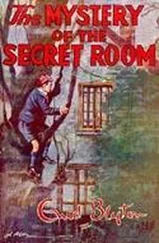The prisoner who asked to have a name run was not looking to review the full file of sad details, to rove over the inopportune mug shot available to all, especially in Florida and California, where they were uploaded by county clerks, making it seem as if a disproportionate share of screw-ups came from those states. The images were all the same: sour light and custodial formatting offset by the wild eyes and mussed hair of people yanked from life, arrested, numbered, ingested, and exposed.
The details of trauma and poverty that surrounded the crimes themselves—which were sometimes available if a case had media attention, or if the trial transcript or case summary was online—were not what the women inside needed or asked after, when they had a name run. What the women wanted to confirm was did their cellmate, unit mate, work partner, prayer group associate, friend, fuck friend, or enemy, did that person hurt a child, or turn state’s evidence. Those were the two types that needed to be verified, baby killers and snitches.
Gordon’s search was more open-ended. He didn’t know what he was searching for. He hoped some equilibrium could be established from the process of obtaining facts. He also sensed that this thing about facts and equilibrium was a lie he told himself to go after squalid details that were none of his business.
By their own social codes, you were not supposed to ask what people had been convicted of. It was common sense not to ask. But the opprobrium on asking was so deep it seemed to also bar speculating, even privately. You weren’t supposed to wonder about the facts that had determined people’s lives. He had in his mind something Nietzsche said about truth. That each man is entitled to as much of it as he can bear. Maybe Gordon was not seeking truth, but seeking to learn his own limits for tolerating it. He did not type some names. He resisted typing Romy Hall, diverted the temptation to other inquiries.
The first one he looked up was Sanchez, Flora Martina Sanchez, whom the others called Button. Her case was all over the internet. Sanchez and two other teenagers had assaulted a Chinese college student near the USC campus. He was premed, and the one allotted child his family was state-sanctioned to have. According to the confession Sanchez provided, the student had tried to “karate chop” her. All three kids mentioned in their confessions that the victim cried in a foreign language as they hit him with a baseball bat. The bat was green aluminum, Worth brand. It had on it fingerprints of the two boys and Sanchez. Sanchez had waved her Miranda rights. They all waved them, gave confessions, went to trial, got life without parole.
They didn’t know what they were doing. Gordon was sure of this as he read.
When they tried to rob the student, they did not know what they were doing. When they killed the student, they knew even less. When they were picked up, each separately, the morning after, and brought in for questioning, and spoke freely, but each in self-interest, to homicide detectives, with no parents present, and no lawyers, they did not know what they were doing.
They had chosen the victim, one of the boys said, because they assumed he was rich, since Asian. They had only wanted his backpack. They weren’t trying to kill him. The student managed to walk home. His roommate heard him snuffling from beyond her closed bedroom door. She figured he’d caught a cold. She didn’t know the reason he was snuffling was because he was aspirating blood.
Gordon believed in a kind of Hippocratic oath, not just as a teacher but as a person, to do no harm. Maybe this snooping was harm. He did it anyway.
All these details in the newspaper articles built a portrait, a set of impressions. Gordon had met Button on the other side, a lost little girl who looked twelve years old. Once, when Sanchez smiled as Gordon praised her in class, he saw her young essence. It was so wanting, and bright, he’d had to look away.
The word violence was depleted and generic from overuse and yet it still had power, still meant something, but multiple things. There were stark acts of it: beating a person to death. And there were more abstract forms, depriving people of jobs, safe housing, adequate schools. There were large-scale acts of it, the deaths of tens of thousands of Iraqi civilians in a single year, for a specious war of lies and bungling, a war that might have no end, but according to prosecutors, the real monsters were teenagers like Button Sanchez.
In the primitive part of the mind, violence was body-to-body, punching and clubbing and cutting. Those people went to prison. Were not offered any kind of mercy. Signed up for Gordon Hauser’s class. Did or did not do the reading.
After indulging in the difficult facts, he all at once grasped why these kids, Button and her friends, had killed the poor student and ruined their own lives.
The student was not a person to them. That was the reason. They would not have harmed someone they knew was a full person. He was alien to them, his fluency in Mandarin something the kids never considered.
The student had snuffled loudly. His roommate had told the courtroom, through tears, and through a Mandarin interpreter, that she thought he had a cold.
There was one photo that Gordon looked at again and again, of little Sanchez and her codefendants in trial. They slumped with tough kid postures and they all wore glasses. He was her teacher and never once saw Sanchez put on glasses. Their public defenders probably insisted they order them and it was among the few health services you could get in county jail, a pair of prescription eyeglasses, or maybe the lawyers went to Walgreens and bought them one-strength-fits-all readers. The photo of them in their glasses, bored and distracted at their own murder trial, made Gordon hate Sanchez. The glasses were meant to alter the jury’s perception. To bend the truth. But he was disgusted with himself for this sudden hate, and maybe guilt and innocence were not even a real axis. Things went wrong in people’s lives.
Reading about her case, Gordon felt he was trying to cross an eight-lane freeway on foot. He had his argument worked out, about why she was a victim, when he found an article that quoted a Youth Authority counselor who testified that he’d overheard Sanchez talking about the crime. “We didn’t even get anything off the nip,” Sanchez had said.
———
Those were the worst nights. In the light of day his mood improved. As he drove the roads that wound down to Stanville, the hillside grasses green-tipped and mohair-soft, heart-shaped clots of mistletoe clustered in the branches of the oak trees like giant beehives, he knew that he could not judge. I cannot judge, because I do not know.
Gordon was familiar, from his time at college and graduate school, with rich kids. If you grew up rich, you played a musical instrument, violin or piano. You were on the debate team. Preferred a certain brand of jeans cuffed just so, maybe you puffed a ciggie or smoked bowls with your friends in your dad’s Lexus, then were late to your SAT tutorial. But so many kids did it differently, and were done to differently. If you were from Richmond, or East Oakland, or, like Sanchez, South LA, you might be trained from birth practically to represent your block, your gang, to rep hard, to have pride, to be hard. Maybe you had a lot of siblings to watch and possibly you knew almost nobody who had finished school, or worked a stable job. People from your family were in prison, whole swaths of your community, and it was part of life to eventually go there. So, you were born fucked. But, like the rich kids, you too wanted to have fun on Saturday night.
All children are looking for a positive self-image. All children want that. It is obtained in different ways.
Читать дальше








![О Генри - Меблированная комната [The Furnished Room]](/books/415396/o-genri-meblirovannaya-komnata-the-furnished-room-thumb.webp)
![О Генри - Комната на чердаке [The Skylight Room]](/books/415780/o-genri-komnata-na-cherdake-the-skylight-room-thumb.webp)


